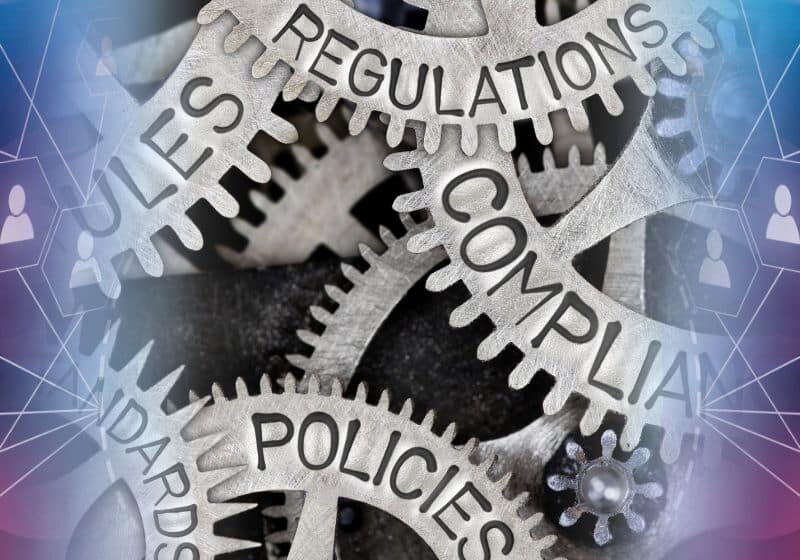The Cost of Compliance: Minimising Risks in 2025

Compliance with employment laws and regulations is a critical aspect of running a business. The stakes are high: non-compliance can result in significant financial penalties, damage to reputation, and a demoralised workforce. As we step into 2025, staying ahead of regulatory changes and adopting proactive compliance strategies is more important than ever.
Non-compliance isn’t just about fines and legal costs—it can have a ripple effect on your business. Beyond financial penalties, businesses may face reputational damage, which can harm customer trust and deter potential employees. A lack of compliance with workplace laws can lead to decreased employee morale, resulting in disengagement and increased turnover. Non-compliance can disrupt operations, as investigations and legal proceedings divert resources and attention away from core business activities. Taking a proactive approach to compliance is an investment in the sustainability and success of your business.
In 2025, several key areas demand attention, particularly with the upcoming Employment Rights Bill. Transparency in employment terms is a vital consideration. Employers should review employment contracts to ensure they are clear and compliant, outlining job roles, responsibilities, and terms of employment. Flexible working practices are another focus area, as the emphasis on flexible working rights grows. Updating policies to accommodate requests and ensure fairness in implementation is essential.
Workplace safety and well-being also require attention. Health and safety obligations now extend beyond physical risks to include mental health and overall well-being. It is crucial to keep policies up to date and ensure managers are trained to handle related issues effectively.
Diversity and inclusion remain priorities for building equitable workplaces. Reviewing hiring practices, addressing biases, and ensuring equality in opportunities and pay are integral steps.
Employers must also be prepared for new obligations surrounding the prevention of sexual harassment in the workplace. This includes implementing robust anti-harassment policies, providing regular training for employees, and establishing clear reporting and resolution mechanisms.
Finally, safeguarding employee and customer data under GDPR and other privacy regulations is non-negotiable. Regular audits and training can help mitigate risks in this area.
To minimise risks, it is essential to create a clear and actionable compliance plan. Begin by conducting a thorough review of HR policies, employment contracts, and workplace practices to identify gaps and prioritise areas needing immediate attention.
Stay informed about regulatory changes and upcoming legislation by subscribing to updates from trusted sources or partnering with a compliance expert. Engaging your team is also key. Managers and employees must understand compliance requirements and their roles in meeting them. This can be achieved through regular training sessions. Using technology, such as HR software, can streamline compliance tasks by maintaining accurate records and tracking employee training.
Remember that compliance is not a one-time effort—regular reviews ensure policies remain relevant and effective.
While compliance may seem like an unnecessary cost, taking a proactive approach delivers tangible benefits. A compliant workplace creates trust, enhances employee engagement, and reduces the likelihood of costly disputes. It positions your business as a responsible and attractive employer in the eyes of potential recruits and customers. Compliance is not just about avoiding penalties—it is about building a resilient, reputable organisation that thrives in the long term.
Lessons Learned: Real-Life Examples of Compliance Failures
Several UK companies have faced significant consequences due to non-compliance with employment laws and regulations. Understanding these examples can highlight the importance of proactive compliance:
- Sports Direct (2016):
Sports Direct faced widespread criticism and financial penalties when it was revealed that some employees were effectively being paid below the National Minimum Wage due to deductions for mandatory security searches. The reputational damage was severe, leading to parliamentary scrutiny and a public apology from the company’s founder. This incident also resulted in changes to their employment practices, highlighting the costly impact of compliance failures on brand reputation and employee trust. - Uber (2021):
After a UK Supreme Court ruling, Uber was forced to reclassify its drivers as workers rather than independent contractors. This change meant drivers were entitled to holiday pay, minimum wage, and other benefits. The case resulted in significant operational adjustments and increased costs for the business, illustrating the long-term financial impact of misclassifying workers. - British Airways (2019):
British Airways faced a record GDPR fine of £20 million following a data breach that compromised the personal data of over 400,000 customers. The incident not only resulted in financial penalties but also damaged the company’s reputation and highlighted the importance of robust data protection measures. - Tesco (2021):
Tesco was ordered to pay a substantial settlement after an equal pay lawsuit revealed discrepancies between wages for male warehouse staff and predominantly female shop-floor workers. The legal battle showcased the growing focus on gender pay equality and the risks businesses face when they fail to address such issues proactively. - Harvey Weinstein Scandal Fallout:
While not a UK-specific example, the global reaction to the Harvey Weinstein scandal led to increased scrutiny of workplace sexual harassment policies. UK employers have since faced growing pressure to implement robust anti-harassment measures, with several companies encountering claims due to outdated or inadequate procedures. These cases underline the importance of compliance in safeguarding employee well-being and organisational integrity.
Impact on Businesses:
While the examples above highlight larger companies, small businesses are not immune to the consequences of non-compliance. In fact, the impact can often be far more devastating. Without the financial resources or brand resilience of big corporations, small businesses may struggle to weather the costs of fines or legal disputes. Reputational damage in a smaller community can have long-term consequences, eroding trust with both employees and customers.
These examples demonstrate the importance of viewing compliance as an ongoing strategic priority rather than an administrative burden.
Key Action Points to Take:
- Review and update employment contracts to ensure they are clear and compliant with current and upcoming legislation.
- Develop or revise policies to support flexible working practices and workplace safety, including mental health initiatives.
- Conduct regular audits of HR practices and implement training for managers and staff to ensure awareness of compliance requirements.
- Invest in technology to streamline compliance tasks and maintain accurate records.
- Schedule ongoing reviews to ensure policies remain effective and aligned with legal requirements.
At HR:4UK, we understand that navigating compliance can be overwhelming for business owners. Our team is here to help. We provide tailored HR support, including employment contract reviews, compliance audits, and updates on regulatory changes.
For clients, we offer access to HR software that simplifies compliance tasks and keeps your business on track. For new readers discovering us, HR:4UK is your partner in creating a compliant, engaged, and thriving workplace. Contact us today to learn how we can support your business in 2025 and beyond.
Angela Clay
A qualified employment law solicitor and our managing director, Angela has unparalleled legal expertise and decades of experience and knowledge to draw from. She’s a passionate speaker and writer that loves to keep employers updated with upcoming changes to legislation, and is a regular guest speaker on BBC Leicester Radio.




